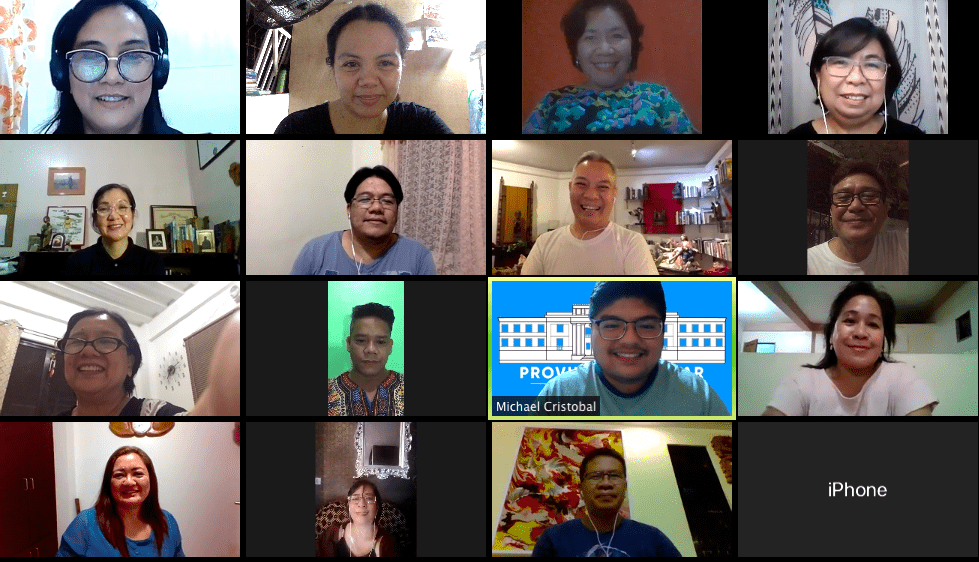
The University of Santo Tomas Graduate School-Center for Conservation of Cultural Property and Environment in the Tropics (UST GS CCCPET) continues to provide valuable assistance to the Samar Provincial Government with the Samar Province Cultural Education Curriculum (SPCEC), part of the Cultural Heritage Values Interpretation Towards Education and Utilization for Community Development: A Cultural Mapping Continuing Project Phase 2.
Dovetailing from the cultural mapping of Samar in 2017, which was facilitated by the CCCPET, the curriculum development guideline was submitted in January 2021, premised on the home, community, and the school as critical agents of empowerment.
The USTGS-CCCPET team, headed by its Director, Assoc. Prof. Eric Zerrudo, Ph.D., collaborated with the Curriculum Development Team, composed of faculty members from the UST Institute of Religion (IR), and universities in Samar. They were endorsed by (then) IR Director Fr. Florentino Bolo, Jr., O.P., and represented by Prof. Joan Christi T. Bagaipo, Ph.D.
Initially, faculty researchers from the UST College of Education were selected, but due to the heavy impact of the COVID-19 on the budget, mobility, and logistics led to a leaner UST team. The project is strongly supported by the Samar Provincial Government and the Department of Education Samar.
Phase 2 formulated a curriculum for Cultural Education based on the Samar Province Cultural Mapping Outputs in developing the cultural competencies of students in Basic Education and Adult Education. It linked the cultural competencies to the Most Essential Learning Competencies (MELC) of the Department of Education and provided guidelines for the development of culture-based learning modules. The project covered the utilization of the cultural mapping data for crafting the SPCEC for Grades 1 to 12 and Adult Education as the basis for the development of cultural education modules and other relevant instruction materials.
Phase 3, set to begin in May 2021, will embark on module development and classroom training, which will be modified due to the mobility constraints brought about by the COVID19 pandemic.




